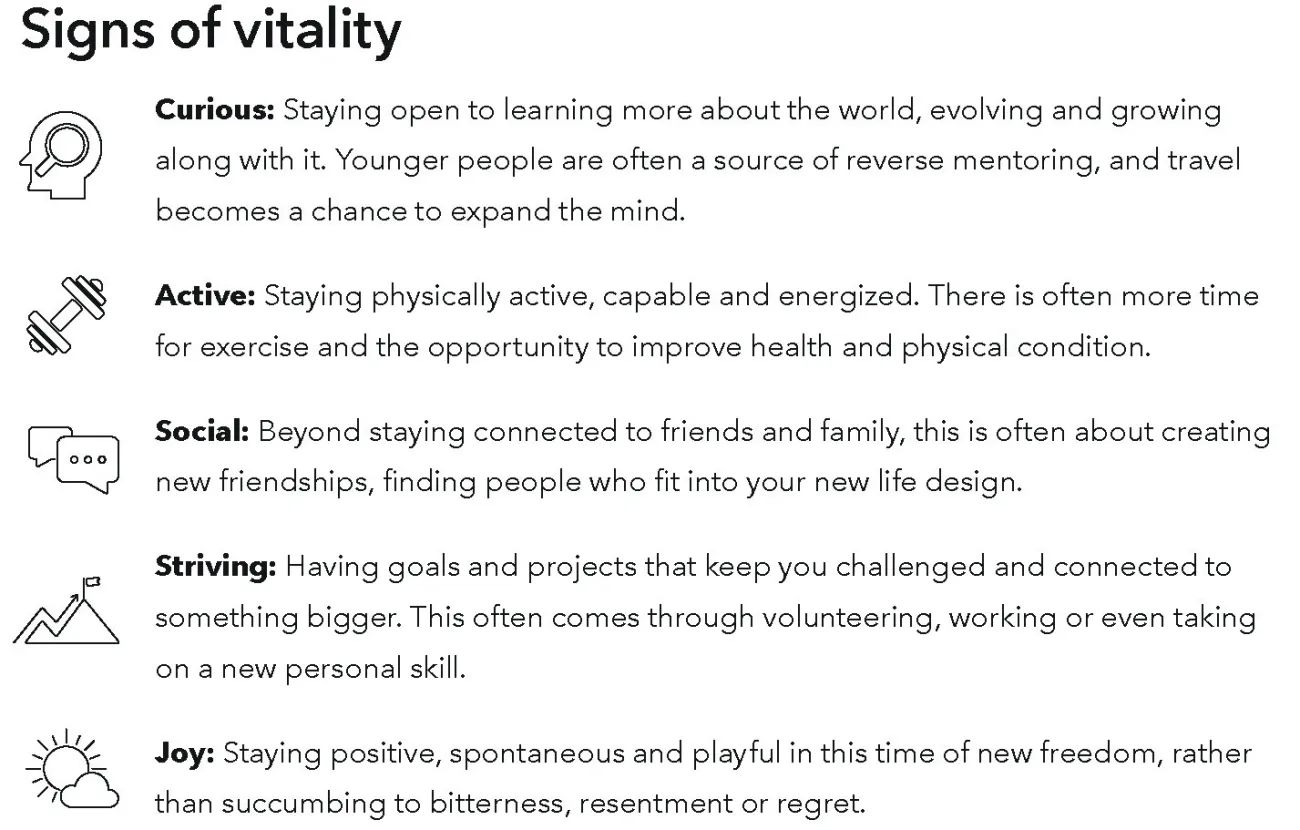
How Retirees Are Redefining the Retirement Life Stage
As a financial planner, it is a great joy to see one of my clients retire. Seeing a client achieve a goal they have been working toward for years – often the majority of their years – is very rewarding. And for many clients, retirement is all they’ve dreamed of. The freedom and the pace are exactly what they’ve been hoping for. But for others, retirement, that great golden period of life, falls a bit short of expectations.
Retirement can be a real challenge for some people. Finding yourself suddenly without the structure and definition of a career can be difficult. So much so in fact, that financial planners are sometimes even advised against using the term “retirement” to define the goal, favoring instead to encourage clients to work toward “financial independence.”
I recently read a case study in an industry publication regarding how retirement has changed from what it once was. This study included six experts on modern aging and retirement culture and 18 investors in different stages of retirement across the country. It explained how today’s modern “midlifers” (as they are called in the study) are navigating four rites of redefinition:
- Reforming their identity: Who are you without your obligations?
- Rewriting your script: How will you fill the new space in your life?
- Exhibiting vitality: How do you show you are not done yet?
- Rethinking relationships: Who do you want to grow with?
I’m sharing this with you today, as I believe they are important questions for anyone saving for retirement – or financial independence – to consider. Taking some time to think about these questions now could help ease the transition from career to whatever comes next.
1. Reforming your identity: Who are you without your obligations?
The study shows that midlifers are growing bolder in retirement. In this life stage, retirees feel like they are free to become an ever better version of themselves. They are also reconsidering their legacy. It is becoming increasingly important for retirees to know that their lives matter. They are feeling compelled to think and act beyond themselves.
As a Financial Planner, I try to help our clients find purpose in the move from working to retiring. I’ve seen many people struggle with this change, and it’s important that our clients don’t retire and lose their self-worth. I also believe that finding purpose will extend our clients’ life expectancy and quality of life. What will be your purpose in retirement?
2. Rewriting your script: How will you fill the new space in your life?
According to the study, midlifers are rejecting the clichés of retirement life. They are challenging the notion of retirement as a time of idle leisure. More people are choosing to work, not because they have to, but simply because they enjoy it. Others are volunteering their time, bringing them new levels of fulfillment.
One of our biggest goals for our clients in this stage of life is to ensure that they are not bored. This is the stage when you realize you have all of the time in the world, and we want to help you figure out what to do with all of this free time. It is also important to build structure for this time, but on your own terms. It is not uncommon that we hear from newly retired clients that they are busier now than ever before. What will your daily life look like in retirement?
3. Exhibiting vitality: How do you show you are not done yet?
The study shows that midlifers are seeing retirement as a new stage of growth, not an end or a decline. Today’s retirees continue to grow physically, mentally, emotionally, and spiritually. Some ways they are growing include:
I am inspired daily by the activities of my retired clients. They take on second careers, travel the world, take volunteer leadership positions, and learn for the sake of learning. How will you stay vital in retirement?
4. Rethinking relationships: Who do you want to grow with?
According to the study, midlifers often start to feel as though they do not want to waste time. A result of this is choosing to invest in the connections that drive contentment and growth. The divorce rate is highest among people age 55-64. It is important that in this new stage of life, you and your spouse both find your separate purposes, as well as your purpose together.
Unfortunately, later-in-life separation and divorce is something I am seeing more often in my career. The difficult transition from working to retirement can illuminate long-existing fissures in a relationship, or create strain that was never before present. Having open and honest conversations as you navigate this new chapter may help bring you and your spouse together, rather than send you apart. How can you and your spouse take this journey together?
Reframing Retirement
It is our job as financial planners to make sure our clients are financially independent, meaning that they can retire from their careers and continue their standards of living for the rest of their lives. However, financial independence isn’t the final goal. It is a foundation upon which identity, freedom, vitality, and relationships can be built. Retirement isn’t a destination or an ending, it’s the beginning of a new chapter that spans years and stages. If you’d like to have a conversation about what your retirement will look like, reach out to your Affiance Financial planner today.
https://www.capitalgroup.com/advisor/practicelab/retirement-playbook.html
This article is being provided for informational purposes only and is believed to be factual and up-to-date. Affiance Financial does not guarantee its accuracy and it should not be regarded as a complete analysis of the subject discussed. All opinions reflect the judgment of the author as of the date of the post and are subject to change. Affiance does not make any guarantees as to the accuracy, suitability, or completeness of third-party content, and takes no responsibility therefore.


